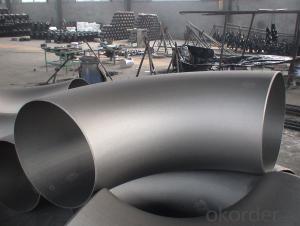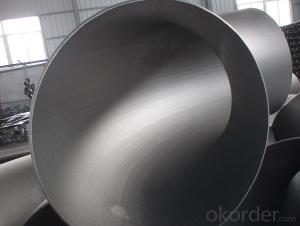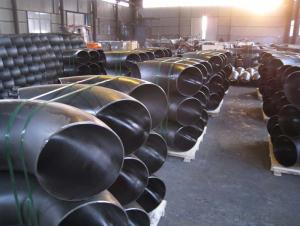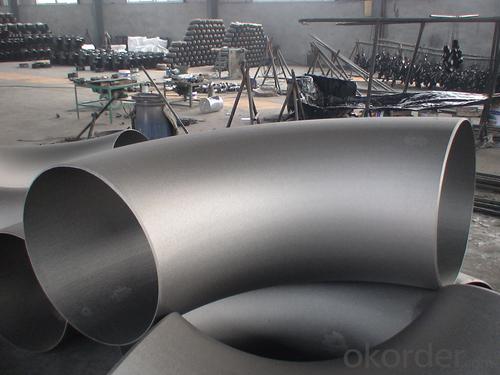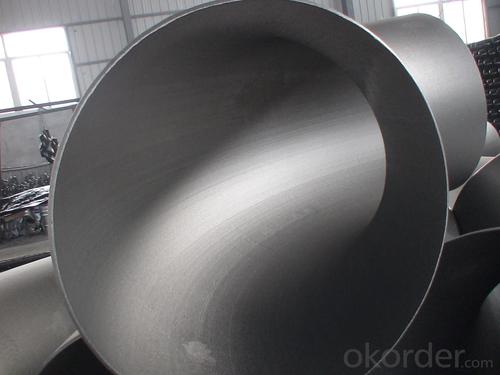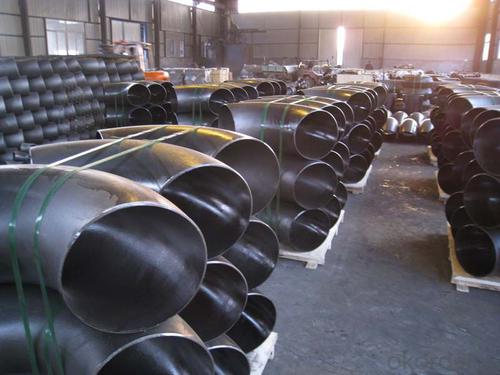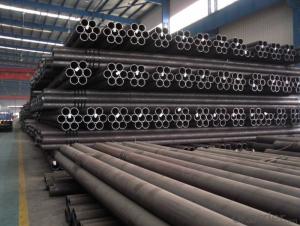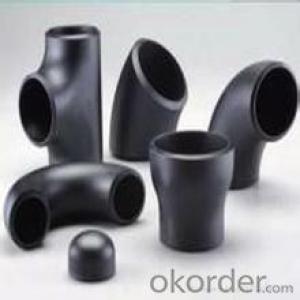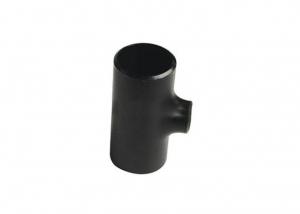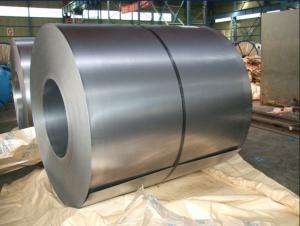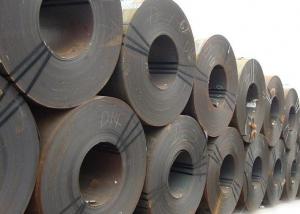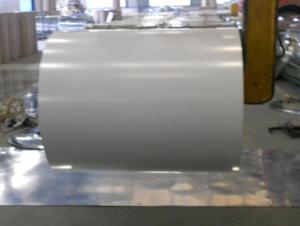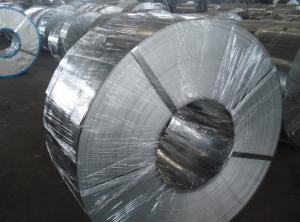Carbon steel pipe fittings
- Loading Port:
- China Main Port
- Payment Terms:
- TT OR LC
- Min Order Qty:
- -
- Supply Capability:
- -
OKorder Service Pledge
OKorder Financial Service
You Might Also Like
Pipe fitting is the occupation of installing or repairing piping or tubing systems that convey liquid, gas, and occasionally solid materials. This work involves selecting and preparing pipe or tubing, joining it together by various means, and the location and repair of leaks.
Pipe fitting work is done in many different settings: HVAC, manufacturing, hydraulics, refineries, nuclear-poweredSupercarriers and Fast Attack Submarinescomputer chip fab plants, power plant construction and other steam systems. Pipe fitters (sometimes called simply "fitters") are represented in the USA and Canada by the United Association of Journeymen and Apprentices of the Plumbing and Pipe Fitting Industry of the United States and Canada.
Fitters work with a variety of pipe and tubing materials including several types of steel, copper, iron, aluminium, and plastic. Pipe fitting is not plumbing; the two are related but separate trades. Pipe fitters who specialize in fire prevention are called Sprinklerfitters, another related, but separate trade.
Materials, techniques, and usages vary from country to country as different nations have different standards to install pipe.
Elbow are an English alternative rock band consisting of Guy Garvey (vocals, guitar), Richard Jupp (drums, percussion), Craig Potter (keyboards, piano), Mark Potter (guitar, backing vocals), and Pete Turner (bass guitar, backing vocals). They have played together since 1990, adopting the Elbow band name in 1997, and have released six studio albums: Asleep in the Back (2001), Cast of Thousands (2003), Leaders of the Free World (2005), The Seldom Seen Kid (2008), Build a Rocket Boys! (2011), and The Take Off and Landing of Everything (2014). All of their studio albums, as well as B-sides compilation Dead in the Boot (2012), have placed in the top 15 of the British album chart and seven of their singles have placed in the top 40 of the British singles chart.
In 2008 Elbow won the Mercury Music Prize for their album The Seldom Seen Kid, and in 2009 they won the Brit Award for Best British Group In 2012 they released "First Steps", the BBC theme for the 2012 London Olympics
Specifications
Standard: ASTM A234 WPB, JIS, DIN, EN, GOST
Use for Oil, Gas, Subwatering act.
45/90/180 degree, LR/SR Elbow
ASTM A234 WPB ELBOW :
| ||||||||
| we are manufacturer for carbon steel pipe and fittings,like 45deg,90deg,180deg,L/R OR S/R,bend , | ||||||||
| equal or reducing tee, CON reducer, ECC reducer, pipe cap,flange. | ||||||||
| CON AND ECC REDUCER: CARBON STEEL,STAINLESS,STELL,ALLOY STEEL | ||||||||
| NOMINAL DIAMETER | BIG OD1 | SMALL OD2 | HEIGHT(MM) | |||||
| MM | SERIES A | SERIES B | SERIES A | SERIES B | 51-711 | |||
| 25*15--1500*1400 | 33.7-1524 | 32-1520 | 21.3-1420 | 18-1420 | ||||
| MATERIAL: A234WPB,A283,A105,A53,A106,API5L | ||||||||
| STANDARD: ASTM/ANSI,DIN,ISO,GB,JIS,BS ,GOST | ||||||||
| OTHERS: | ||||||||
| 1. Special design available according to requirement | ||||||||
| 2. All the production process are made under the ISO 9001:2000 strictly. | ||||||||
- Q: How do steel products contribute to the construction of dams and reservoirs?
- Steel products contribute to the construction of dams and reservoirs in various ways. Firstly, steel is used to reinforce the concrete structures, making them stronger and more durable. Steel bars, known as rebar, are embedded within the concrete to provide tensile strength and prevent cracking. Additionally, steel sheets are often used as formwork to shape and support the concrete during its curing process. Moreover, steel is utilized in the manufacturing of gates, turbines, and other mechanical components required for the operation of dams and reservoirs. Its high strength-to-weight ratio makes it ideal for constructing these large-scale infrastructure projects, ensuring their stability and longevity.
- Q: What are the different types of steel beams used in building structures?
- There are several types of steel beams commonly used in building structures, including I-beams, H-beams, and wide flange beams. I-beams, also known as W-beams, have a cross-section shaped like the letter "I" and are commonly used in residential and commercial construction. H-beams, also known as H-shaped beams, have a cross-section shaped like the letter "H" and are often used in bridge construction. Wide flange beams, also known as W-flange beams, have a wider flange than I-beams and are commonly used in industrial and commercial construction.
- Q: What are the different types of steel pipes and tubes?
- There are several different types of steel pipes and tubes, including seamless pipes, welded pipes, galvanized pipes, stainless steel pipes, and structural tubes.
- Q: How is steel rebar reinforced in concrete structures?
- Steel rebar is reinforced in concrete structures by placing it strategically within the concrete, typically in a grid-like pattern. The rebar is then securely tied or welded together to provide additional strength and stability to the structure. This reinforcement helps to distribute the load and prevent cracks or failures in the concrete, ensuring the overall durability and resilience of the structure.
- Q: How is steel used in the automotive industry?
- Steel is widely used in the automotive industry for its strength, durability, and cost-effectiveness. It is used in the construction of vehicle frames, body panels, and structural components, ensuring the safety and stability of vehicles. Additionally, steel is also used in the production of engine parts, suspension systems, and braking systems, contributing to overall performance and reliability.
- Q: What is the role of steel in the manufacturing of railway tracks?
- Steel plays a crucial role in the manufacturing of railway tracks as it is the primary material used for the rails. Steel's high strength, durability, and resistance to wear and deformation make it ideal for withstanding heavy loads, extreme weather conditions, and continuous train traffic. The use of steel ensures the tracks remain stable, safe, and capable of supporting the weight of trains over long distances, contributing to the efficiency and reliability of the railway system.
- Q: How is steel used in the railway industry?
- Steel is used extensively in the railway industry for various purposes. It is used to manufacture rails, which form the tracks on which trains run. Steel is also used to construct train cars, locomotives, and various components such as wheels, axles, and couplers. Additionally, steel is utilized in the construction of bridges and tunnels, ensuring the safety and stability of railway infrastructure.
- Q: What are the common uses of steel in everyday life?
- Steel is commonly used in everyday life for a variety of purposes. It is used in construction for buildings, bridges, and roads due to its strength and durability. Steel is also used in the manufacturing of vehicles, appliances, and machinery, as it provides structural support and can withstand heavy loads. Additionally, steel is used in the production of household items such as utensils, tools, and furniture. Overall, steel plays a crucial role in our daily lives, contributing to the infrastructure and functionality of modern society.
- Q: How do steel products contribute to the construction of theme-based water parks?
- Steel products play a crucial role in the construction of theme-based water parks due to their strength, durability, and versatility. Steel is commonly used in the framework, supports, and structures of water slides, wave pools, and other attractions. It provides the necessary stability and structural integrity to withstand the dynamic forces exerted by water and the continuous use by visitors. Additionally, steel can be shaped and fabricated into various forms, allowing for intricate and captivating designs that enhance the overall theme and aesthetics of the water park.
- Q: How is steel used in the production of laboratory equipment?
- Steel is commonly used in the production of laboratory equipment due to its durability, strength, and resistance to corrosion. It is utilized in the manufacturing of various instruments like test tubes, pipettes, microscopes, and lab benches. The use of steel ensures that the equipment can withstand harsh chemicals, high temperatures, and repeated sterilizations, making it ideal for laboratory settings where accuracy and reliability are crucial.
Send your message to us
Carbon steel pipe fittings
- Loading Port:
- China Main Port
- Payment Terms:
- TT OR LC
- Min Order Qty:
- -
- Supply Capability:
- -
OKorder Service Pledge
OKorder Financial Service
Similar products
Hot products
Hot Searches
Related keywords
